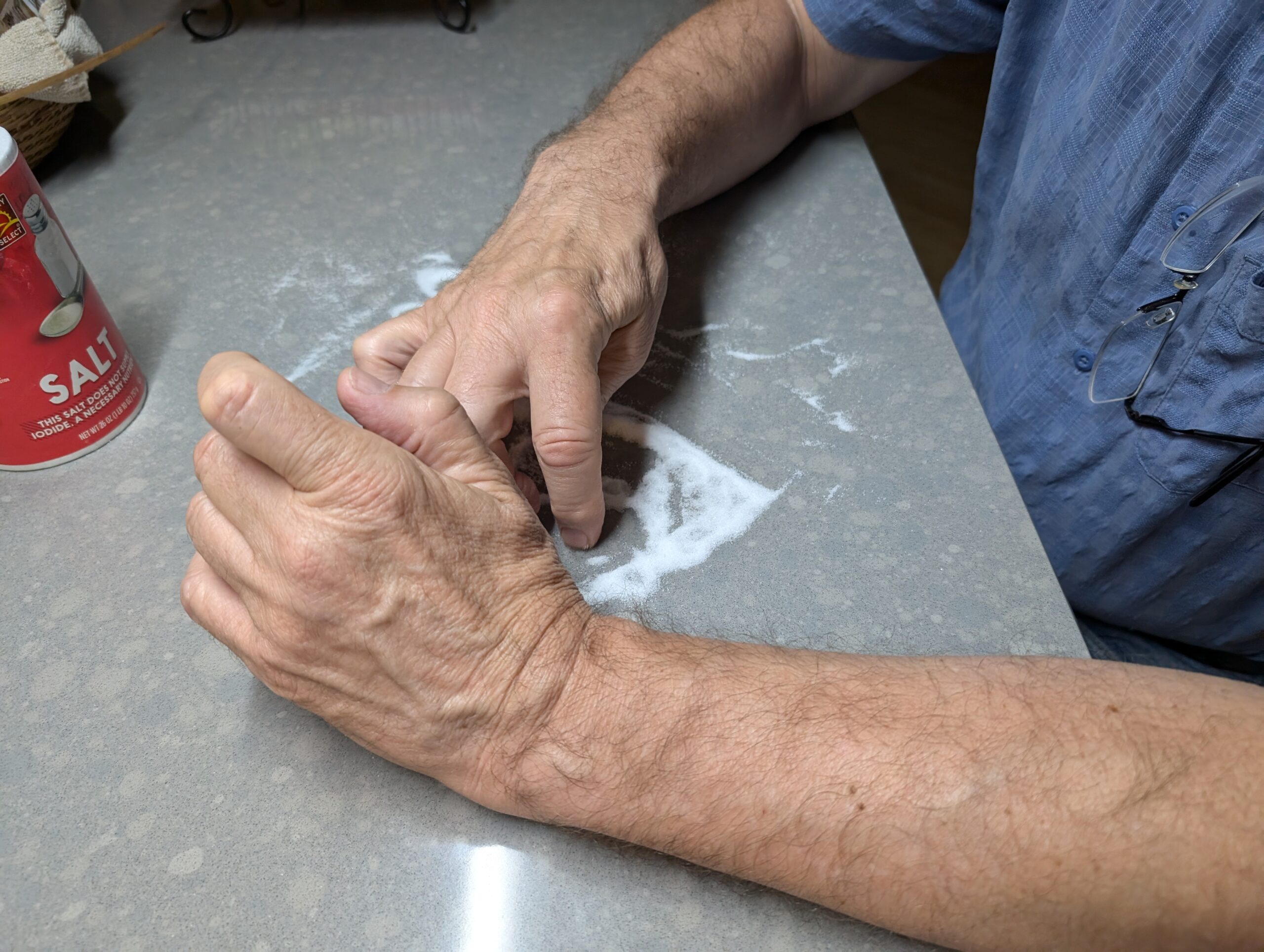50 Give or Take, May 9, 2025 A pastor and social activist for his lifetime,…

“The Black Box”
Esthetic Apostle, June 2018
With head bowed, he slid stealthily onto the church bench in the living room of a neighbor’s home. He narrowly evaded tripping on a shoelace, marching behind a boy dressed exactly like himself: white cotton shirt, suspenders, barn-door pants — the good pair that he saved for Sunday which was exactly like his work pair minus the aroma of manure.
They sat together in a row, little boys as quiet as proverbial church mice knowing that the slightest snicker, scratch, or unintended slump, would translate into hellish retribution at home. As the Amish bishop’s son, he had to set an example. The other boys could not compete with his ability to sit perfectly still, but then their slip-ups were never so costly as his. With any complaint, his dad would administer an unforgettable whipping. So he sat quietly and daydreamed about dashing past admiring English girls on his horse. No one could know what was in his mind. While he daydreamed he kept his eyes open so as not to fall off the bench and to appear to be listening.
The other teenagers hated his obedience. His father, on the other hand, constantly rebuked him for sneezing in church or for other infractions such as forgetting to feed the cows on time. He listened to his father preach, gory biblical stories of fire and blood, severed foreskins, and wars. It all made him a bit queasy. He searched for incentives to remain within the confines of the simple life, but the only reason he had to stay was that it was too painful to leave.
The woman he married silently cooked his dinners precisely to his satisfaction and gave birth to his children year after year. He struggled to recapture the joy of his daydreams in church. In his mind, he once again pictured freedom, felt it stir his hair even while the sickening recognition settled deep into his bones that liberty and choice existed only in some vague and far off place, residing in the far corners of his imagination. The image of his wife and her delicious meals slowly dissolved into his memory of hard benches and long sermons from his youth.
So he told her they were leaving the church and her few friends, taking all seven children with them. We will buy a car and read by fluorescent light, he told her. We will find other friends. He felt woozy and became light-headed, emboldened by the power he wielded over his own little fiefdom of family and farm.
The loneliness got to him, however, along with the derision he felt from his neighbors. His domain continued to crumble. His teenaged sons cursed him for beating their mother. His wife continued to walk silently a few feet behind him. He sensed that what little he had gathered over the years was slipping away.
With his children grown and his farm sold out from beneath his feet, he cursed the bank that now owned it and ventured out in new directions. He peddled Blue Stuff, sold used cars, and drove a garbage truck. Mostly he hated his life. No one wanted to buy from or hire him, a dirty, old, disreputable ex-Amishman. And whoever heard, they murmured behind his back, of a dirty, lazy Amishman, even if he was an ex? He heard them; they made no attempt to be discreet.
One day late in his life, he sat tinkering in the workshop that he had built beside his house. Inside these four walls, he had located one space where he felt completely at home. In here, he was spared the way people averted their eyes when he passed them on Main Street. He was finishing a cedar chest he had designed for his granddaughter, the only person who liked him just because he was her grandpa.
Without forethought, he began to make another box out of wood scraps. Freed from planning and vision, he steadily created it. It was not large, just a foot in each direction. Nothing fancy, a few hinges and a lock. It must be plain, that he knew, although he had no real reason for that. He picked up the closest paint can (it happened to be black) and finished it off.
It was not until he landed in jail that he really stopped to contemplate his creation. He had intended to use the box to heal himself by extending it to others for their healing, his offering of forgiveness for all they had done to him over the years. Even then, he knew they would refuse his gift so he took it to a neighboring community. There he offered it to people who, he believed, would not reject him, to people who did not know him and who were looking for cures to one malady or another, cures that did not involve insulin or antibiotics or radiation. People, in other words, more desperate than himself.
He told them to call him “doctor,” asked for some faith. He required only a strand of hair or perhaps a toenail, which he placed lovingly in the Black Box and prayed over it. Now, he reasoned, the world would see his true essence, recognize his goodness, acknowledge his power to heal. And with physical healing, perhaps they would forgive him for all those other things: for sitting too still and for not sitting still enough, for forgetting to feed the cows, for beating his wife, for being dirty and lazy, for losing his farm.
But they did not forgive him. Some of them laughed. One person called the police. Now here he was awaiting trial for medical fraud. And all he had wanted was one simple thing. Why could no one understand that it was all a 70-year-old man needed, just like anyone else?
But they were blinded by their goodness, while he was on his way to prison.



